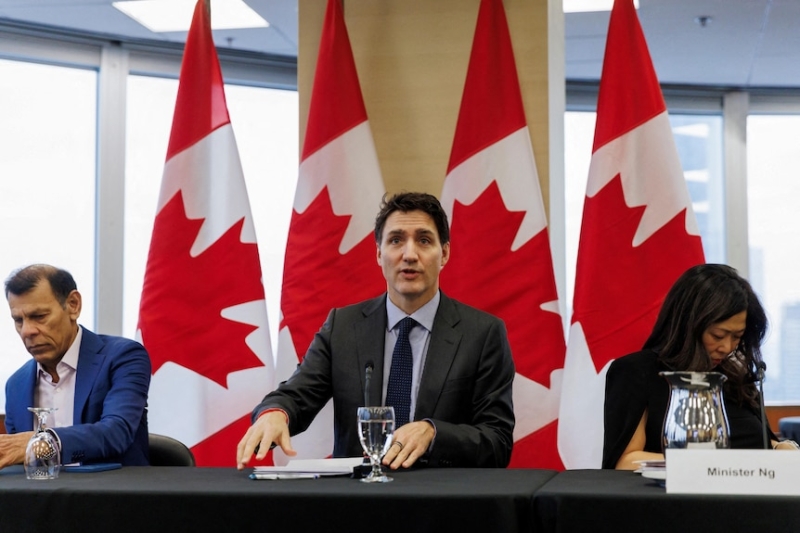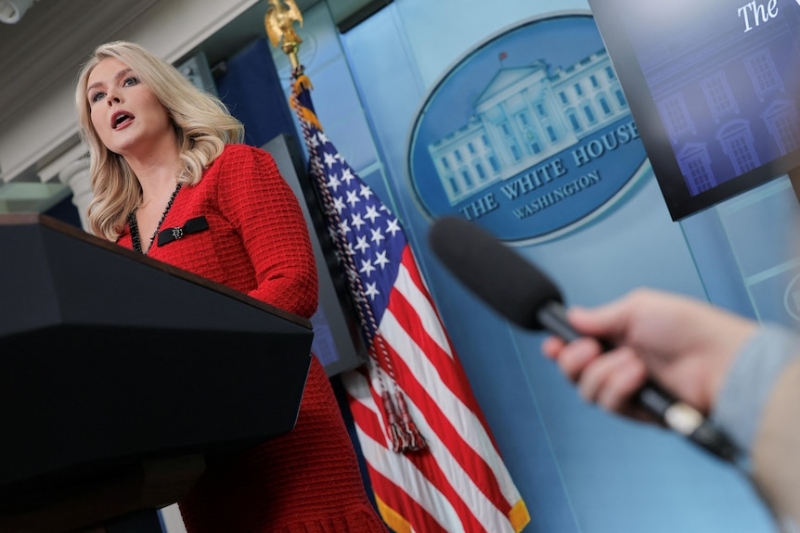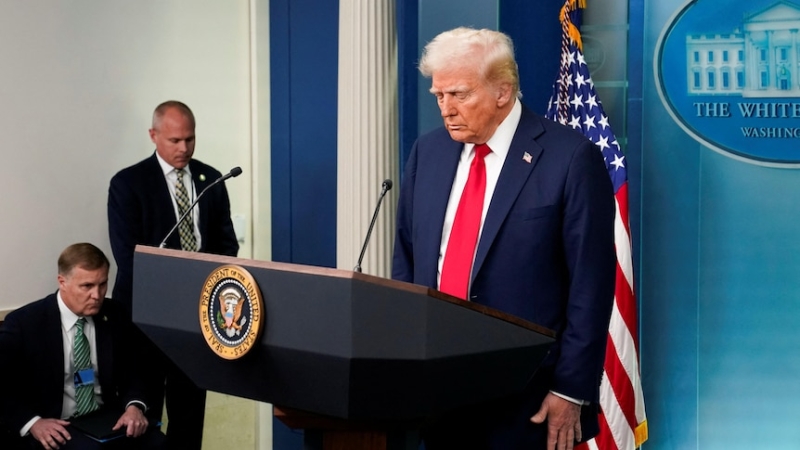In short:
Mexico, Canada and China will face tariffs on exports to the US from Saturday, the White House has confirmed.
Despite earlier reports Donald Trump would wait until March 1, Mexico and Canada will be hit with tariffs of 25 per cent, and China a rate of 10 per cent, from Saturday February 1.
Donald Trump will impose tariffs on imports from Mexico, Canada and China into the US from Saturday, the White House has confirmed.
Mexico and Canada are set to face levies of 25 per cent on goods and China 10 per cent, Karoline Leavitt, the White House press secretary, told reporters on Friday afternoon, local time.
She said the duties were a response to "the illegal fentanyl that they have sourced and allowed to distribute into our country", adding that they were "promises made and promises kept by the president".
Reuters had earlier reported the new tariff regime would begin on March 1, but Ms Leavitt said that the date was incorrect and they would in fact begin on February 1, adding: "Twenty five per cent tariffs on Mexico, 25 per cent tariffs on Canada, and a 10 per cent tariff on China for the illegal fentanyl that they have sent to our country, which has killed tens of millions of Americans."
She went on to say that Mr Trump had not yet decided on a tariff regime for the European Union.
White House Press Secretary Karoline Leavitt at the White House briefing (Reuters: Carlos Barria)
Mr Trump has previously said the tariffs were aimed at addressing the number of illegal immigrants that had crossed the border into the US and trade deficits with America's neighbouring countries.
He said on Thursday that he was in the process of "enacting tariffs on the United States's neighbours to the north and south — which could have major impacts on the economies of the two nations.
He added: "We're going to make that determination probably tonight on oil. Because they send us oil, we'll see — it depends on what their price is."
Canada and Mexico have previously said they would impose measures of their own should the US impose tariffs.
Justin Trudeau, the Canadian Prime Minister, said on Friday his country would immediately respond with forceful countermeasures in the event of tariffs, adding: "It's not what we want, but if he moves forward, we will also act."
Mr Trump's punitive duties and retaliatory tariffs from Canada and Mexico threaten to disrupt nearly $1.6 trillion in North American trade and effectively end a 30-year free trade system that has deeply integrated the three economies.
US consumers grappling with soaring prices for beef and eggs could also end up facing higher costs for meat, vegetables and fruit, economists and food industry executives have warned.

Justin Trudeau's Canada is set to face tariffs from Saturday (Reuters: Cole Burston)
Economists and business executives have warned that the tariffs would spark major increases in the prices of imports such as aluminium and lumber from Canada, fruits, vegetables, beer and electronics from Mexico and motor vehicles from both countries.
Tariffs are paid by firms that import goods and pass the costs on to consumers or accept lower profits, economists say.
"President Trump's tariffs will tax America first," said Matthew Holmes, public policy chief at the Canadian Chamber of Commerce. "From higher costs at the pumps, grocery stores and online checkout, tariffs cascade through the economy and end up hurting consumers and businesses on both sides of the border."
Canada has drawn up detailed targets for immediate tariff retaliation, including duties on orange juice from Florida, Trump's adopted home state, a source familiar with the plan said. Canada has a broader list of targets that could reach $CA150 billion ($166 billion) worth of US imports, but would hold public consultations before acting, a source told Reuters.
Reuters





